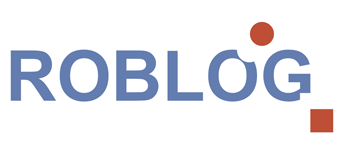
RobLog
Cognitive Robot for Automation of Logistic Processes
| Project Information | |
|---|---|
| Funding Agency | EU FP7 |
| My Role | Researcher |
| Project Website | http://www.roblog.eu |
| Duration | February 2011 to January 2015 |
| Coordinator | Fachhochschule Reutlingen, Germany |
| Partners | Jacobs University Bremen gGmbH, Germany |
| BIBA - Bremer Institut für Produktion und Logistik GmbH, Germany | |
| Berthold Vollers GmbH, Germany | |
| Qubiqa A/S, Denmark | |
| University of Pisa, Italy | |
| Orebro University, Sweden | |
My role in the project
During my brief work in this project, I focused on contributions in 3D simultaneous localization and mapping for the moving base of the robot. I was also able to build experience in object recognition, manipulation, and planning.
Executive Summary
The ROBLOG project focused on semi-autonomous unloading of soft and unstructured items from large shipping containers for logistics. Two demonstrators were developed, one focusing on the near-term industrial scenario of coffee bag unloading, and one focusing on a more advanced scenario with heterogeneous (size, weight, shape, softness, etc) goods.
Video - Final Demonstration
Project Objectives
Globalization causes an increasing transport of goods. Nowadays, most goods are shipped in containers and are transferred onto trucks for further transport. The containers are unloaded manually since they are nearly always packed chaotically, the variety of transported goods is high, and time requirements are strict. Unloading of containers is a strenuous task as goods have a weight up to 70 kg that poses health risks, which include the effects of pesticides and poisonous gases as well as injuries through unexpectedly falling objects. Human labor is hence a high cost factor combined with unhealthy working conditions, making automated solutions highly desirable. Existing systems for automated unloading are restricted to specific scenarios and still have drawbacks in their flexibility, adaptability and robustness. A robotic system suited for any unloading task of containers requires a high amount of cognitive capabilities. RobLog aims at developing appropriate methods and technologies meeting the requirements to automate logistics processes.The RobLog system has to be capable of 3D perception in a challenging scenario (high variability of objects, dynamic scene, deformable objects). The perceived environment has to be integrated into a 3D model in real-time. Grasping hypotheses, decisions and path-plans have to be generated and executed in an adaptive manner including obstacle avoidance and re-planning, if necessary. The actions must be grounded in a physical set-up capable of handling a large variety of potentially deformable items. Finally, there is the need to provide an interface suited for a human operator to provide high-level instructions to a multitude of systems operating at several unloading docks in parallel. All these advances are demonstrated within the project in close cooperation with an industrial end-user in a realistic application scenario; thus opening the potential to reach a completely new level of automation in the logistics chain.